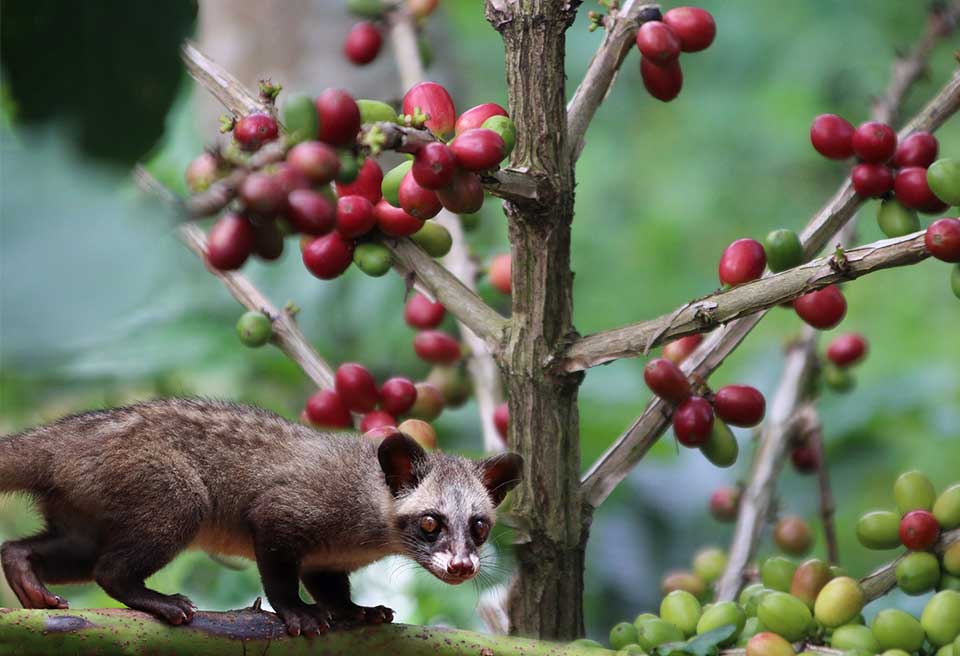Kopi Luwak, also known as civet coffee, is one of the most expensive and controversial types of coffee in the world. It is produced from the feces of the Asian palm civet, a small mammal native to Southeast Asia.
The production process of Kopi Luwak is both unique and controversial. The civet feeds on coffee cherries, which are then partially digested and excreted as feces. The coffee beans are extracted from the feces, washed, and roasted to produce the final product.
While the production process may seem unappealing to some, proponents of Kopi Luwak argue that it results in a unique and highly prized flavor profile. The partially digested beans are said to produce a coffee that is smooth, earthy, and slightly sweet, with low acidity and bitterness.
However, the controversy surrounding Kopi Luwak lies in the treatment of the civets used in its production. In some cases, civets are captured and kept in cramped and unsanitary conditions, fed a diet consisting solely of coffee cherries, and forced to produce feces for the coffee industry. This has led to concerns about animal welfare and ethical issues in the production of Kopi Luwak.

In response to these concerns, some companies have started producing “wild” Kopi Luwak, which is harvested from civets that are free to roam and eat a varied diet. While wild Kopi Luwak is generally considered to be more ethical and sustainable, it is also significantly more expensive than conventionally produced Kopi Luwak.
The cost of Kopi Luwak coffee is another aspect that has contributed to its notoriety. It is considered to be one of the most expensive coffees in the world, with prices ranging from $100 to $600 per pound, depending on the quality and rarity of the beans.
The high cost of Kopi Luwak can be attributed to a number of factors. The production process is labor-intensive, as the beans must be extracted from the feces by hand. Additionally, the limited supply of Kopi Luwak, combined with high demand from coffee connoisseurs, has driven up prices.
However, some experts argue that the high cost of Kopi Luwak is not necessarily indicative of its quality. In blind taste tests, some coffee experts have found that Kopi Luwak does not necessarily taste better than other high-quality specialty coffees.
In conclusion, Kopi Luwak coffee is a highly controversial and expensive type of coffee that is produced from the feces of the Asian palm civet. While some coffee connoisseurs praise its unique flavor profile, others criticize the production process for ethical and animal welfare concerns. The high cost of Kopi Luwak is driven by a combination of labor-intensive production methods and limited supply, as well as high demand from consumers. However, it is important to note that the high cost of Kopi Luwak does not necessarily indicate superior quality, and that there are many other high-quality and ethically produced specialty coffees available.





